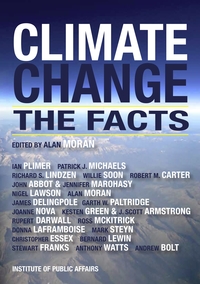Yesterday's episode of the series opened up Bernie Lewin's chapter about the background of the IPCC and also the history of the gross power imbalance held by third world countries at the United Nations, in particular with climate issues.
Today, in episode 25 of our Climate Change: The Facts serialization, Lewin tells of the 1990 revolt in Sweden that cemented this reality.
You can listen to this latest episode right here.
The Climate Change: The Facts audio serialization is one of many exclusive benefits for Mark Steyn Club members. To explore Club membership for yourself or a loved one, head on over to this page.



























